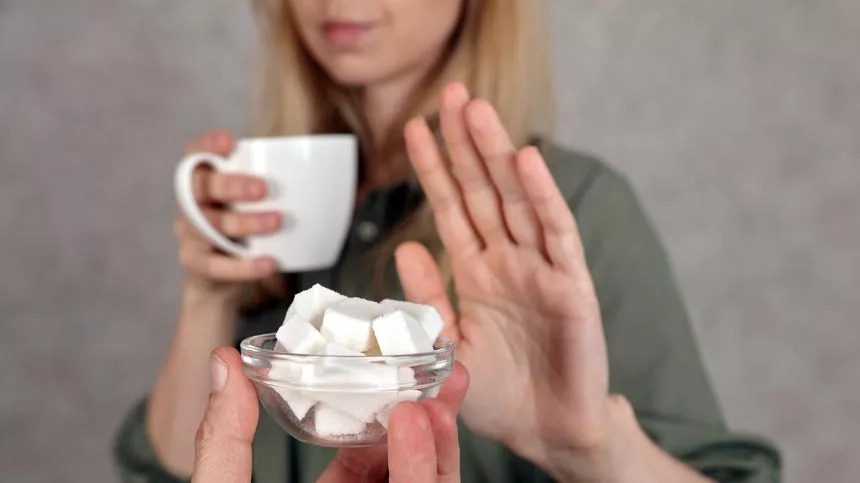The Perils and Pleasures of Sweet Things in Sobriety
Table of Contents
A few years ago, the New York Times published an article about the tendency for ex-drug and alcohol users to develop affinities towards sugar addictions. The article was titled: Off the Drugs, Onto the Cupcakes, perfectly suitable title in my eyes, and I also experience the same struggle that the article interviewee, Rodney Zimmers, experienced while he was getting sober in terms of getting ‘addicted to sugar.’
Many of us have heard the phrase, “replacing one addiction with another” and for each of us, it can mean something a little different. For example, some people get addicted to sugar, others use the gym or their job, and some people use relationships or church. Whatever your poison, the fact remains that we as recovering alcoholics and addicts must be able to practice the art of balance in our lives.
Sugar on the Brain
The body does actually require a form of sugar in order to function properly. Glucose is the primary source of energy for every cell in the body, and the brain requires half of the bodies supply for the neurons to function properly.
Functions such as thinking, memory, and learning are all closely related to the glucose levels in the brain. However, there is a thin line between good sugar, bad sugar, and being addicted to sugar.
Sugar Can Create Chemical Reactions

Sugar interacts with the nucleus accumbens or, the brain’s “reward center” in the same way that drugs do. Research has shown that people who are addicted to sugar and eat excessive amounts will usually crave more of it, and people who don’t eat much sugar but then partake will experience that “sugar high” feeling. Because sugar affects the brain the way that it does, people who regularly partake in a high sugar diet can often experience withdrawal symptoms when they cut sugar from their diet. These symptoms include:
- Depression and Insomnia
- Irritability and mood swings
- Anxiety
- Hyperactivity or decreased energy (crash)
- Nausea
- Heart Disease and Obesity
- Hormonal Imbalances and Acne
- Bingeing and Purging tendencies
- Decreased Immune Functions and hypoglycemia
Research has performed on the effect of sugar on the reward centers of the brain, and the discoveries have been fascinating.
- The American Journal of Clinical Nutrition discovered that not only does food and drugs have the same effect on these reward centers, but that sugar especially can trigger the same craving feeling that drugs do.
- A study has reported that Oreo cookies trigger the nucleus accumbens the same way that morphine and cocaine effect it.
In the article about Rodney Zimmers, and as is relative to many recovering addicts, he states that while during his stay in substance abuse treatment, he learned how to sober up, but he didn’t learn much about the basics of good nutrition. Neither did he master the art of grocery shopping, and the result of this was a quick burst of weight gain right after treatment. Rodney shot up from 135 (definitely not healthy either, the results of his cocaine and heroin addiction) pounds to 250 pounds.
Personal Experiences with Sugar in Sobriety
As someone who has both attended substance abuse treatment centers and has also worked in them, I can attest to the fact that the idea of healthy and whole nutrition is not always at the forefront of the agenda. The first treatment center I attended did provide us with cooking classes, however, we were only allotted one class during our stay.
We were allowed to go grocery shopping for ourselves, but let’s be honest, I was always too sick or too lazy to cook for myself, so quick snacks like breakfast cereals and pop tarts were the go-to.
Not to mention, a recovering addict and alcoholic will pretty much rely on caffeine, soda, and energy drinks to survive for the first few months, and the sugar content of these products could supply small villages for weeks.
Not to mention, one of the treatment centers I had worked in after sobering up supplied their clients with Dunkin Donuts bagels, donuts, and coffee every single day and bought them fast food for dinner at night.
A Holistic Recovery: The Goal

The reason why this fatty and substance-lacking food is served at so many treatment centers is pretty simple, money. It is always money. But these processed and manufactured foods are always cheaper, easier to ship in and store as they are primarily frozen, and more cost-effective to distribute.
Someone paying attention to their holistic recovery wants to get rid of all of that. Their focus is on the well-being of the entire body, mind, and spirit. It has been proven that what we put into our bodies affects us deeply, so doctors know that the food that we eat plays an integral role in our recovery and development. Our goal is to teach not only about healthy nutritious foods but the dangers of becoming addicted to sugar and other low-valued foods.
After all, we are what we eat, and we all want to be healthy and happy. It should only make sense that our food is healthy and happy, too!
Freedom From Addiction: Found Here
If you have found yourself or a loved one suffering from alcoholism or addiction, you are not alone! If you are ready to change your life and live free of addiction, then FindAddictionRehabs.com can help. We give you the jump start to recovery you need through placement at top rehab facilities matched to your needs.
Give yourself a break and reach out to our team of recovery representatives for a confidential call today!
Anna M. joined Find Addiction Rehabs with extensive experience in the field of addiction treatment. As a former Nurse Practitioner in Miami, she found her passion for addiction treatment when a family member was lost to his disease. With each article and resource, she hopes to save other families from experiencing the anguish of a loved one’s passing due to drinking or drugs.


